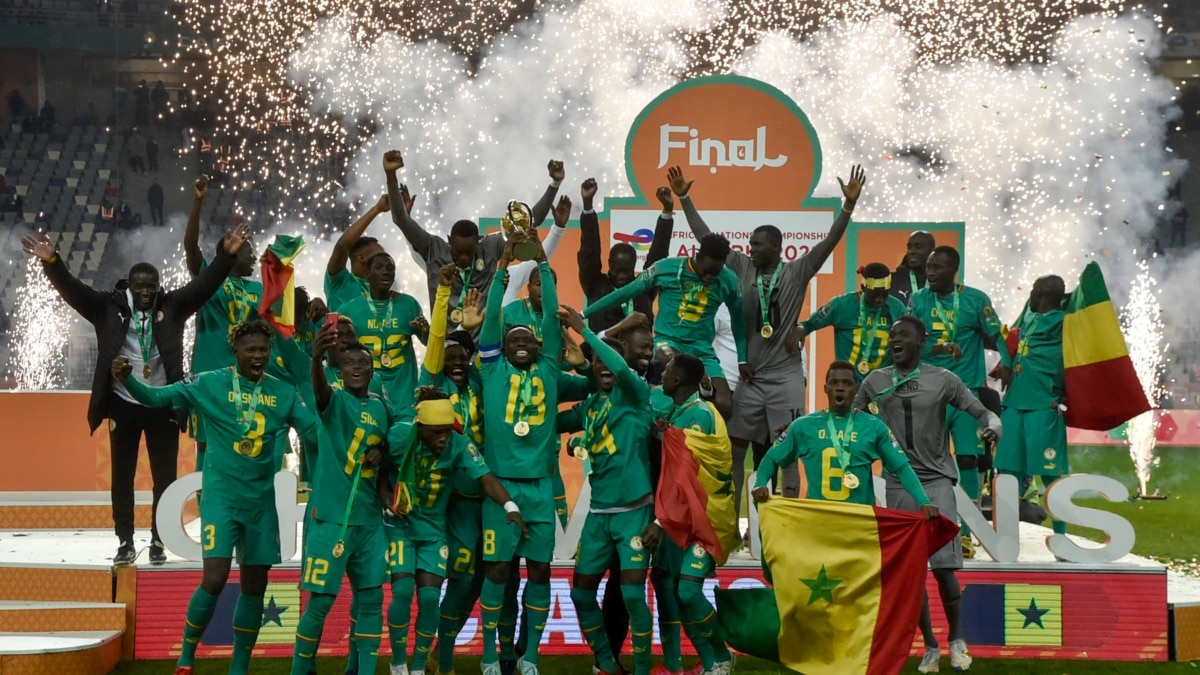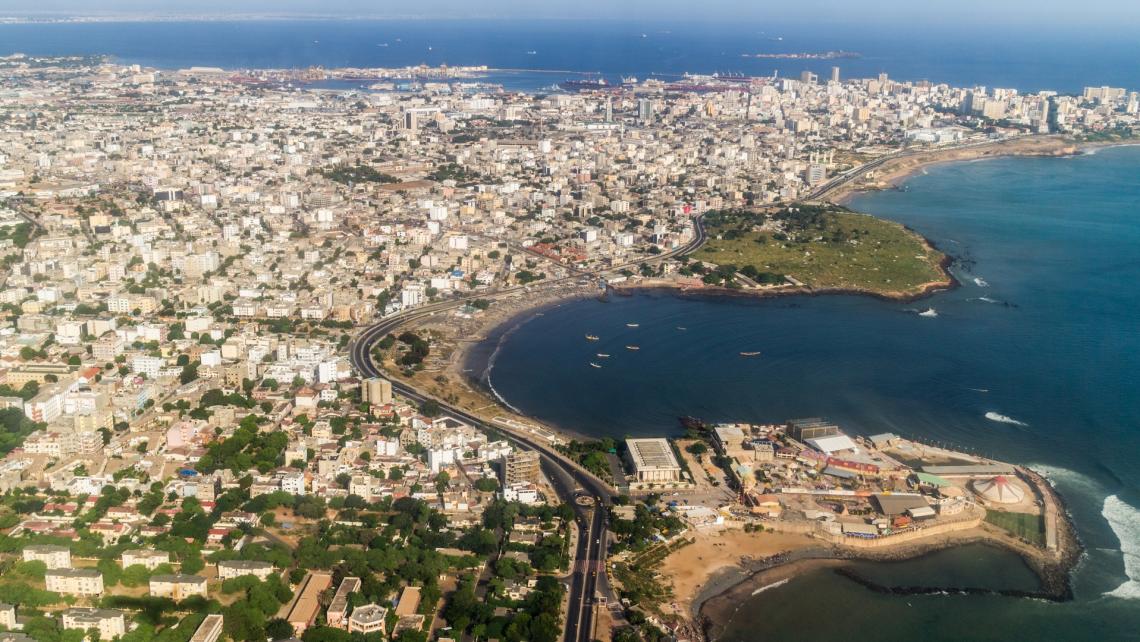“Football Rivalries in Senegal: A Nation United and Divided by the Beautiful Game
Related Articles Football Rivalries in Senegal: A Nation United and Divided by the Beautiful Game
Football Rivalries in Senegal: A Nation United and Divided by the Beautiful Game

Senegal, a West African nation renowned for its vibrant culture, warm hospitality, and passionate love for football, boasts a rich tapestry of rivalries that ignite the sporting spirit of the country. These rivalries, born out of geographical proximity, historical clashes, and the quest for supremacy, transcend mere matches; they are deeply woven into the social fabric of Senegal, uniting and dividing communities in a fervent display of sporting passion.
The Genesis of Senegalese Football Rivalries
The roots of Senegalese football rivalries can be traced back to the early days of the sport’s introduction to the country in the late 19th and early 20th centuries. As football gained popularity, clubs emerged in various regions, fostering a sense of local pride and competition. These early rivalries were often based on geographical proximity, with teams from neighboring towns or districts vying for bragging rights and regional dominance.
Over time, these rivalries evolved, fueled by historical clashes, memorable encounters, and the emergence of star players who became symbols of their respective clubs. The quest for trophies and the desire to be recognized as the best team in the country further intensified these rivalries, transforming them into highly anticipated events that captivated the nation.
Key Football Rivalries in Senegal
Senegal is home to several intense football rivalries, each with its own unique history, characteristics, and passionate following. Some of the most prominent rivalries include:
-
ASC Jaraaf vs. AS Douanes: This is arguably the most iconic and fiercely contested rivalry in Senegalese football. Both clubs are based in Dakar, the capital city, and their matches are known as the "Dakar Derby." ASC Jaraaf, founded in 1933, is one of the oldest and most successful clubs in Senegal, while AS Douanes, established in 1950, represents the customs and excise department.
The Dakar Derby is a clash of cultures, with ASC Jaraaf traditionally associated with the working class and AS Douanes representing the more affluent and educated segments of society. Matches between these two teams are always sold out, and the atmosphere in the stadium is electric, with fans creating a cacophony of noise and color.
-
ASC Diaraf vs. US Gorée: This rivalry, known as the "Classique," pits two of Senegal’s most historic and successful clubs against each other. ASC Diaraf, based in Dakar, and US Gorée, hailing from the island of Gorée, have a long and storied history, having dominated Senegalese football for decades.
The Classique is a battle of generations, with fans of both clubs passing down their passion and loyalty to their children and grandchildren. Matches between these two teams are always fiercely contested, with both sides eager to claim bragging rights and assert their dominance.
-
Casa Sports vs. ASC Jeanne d’Arc: This rivalry, known as the "Southern Derby," features two of the most popular clubs from the Casamance region of southern Senegal. Casa Sports, based in Ziguinchor, and ASC Jeanne d’Arc, from Dakar, have a strong following in their respective regions, and their matches are always highly anticipated.
The Southern Derby is a celebration of Casamance culture, with fans showcasing their traditional music, dance, and attire. Matches between these two teams are not only a sporting event but also a cultural festival that brings communities together.
-
ASC Linguère vs. ASC SUNEOR: This rivalry, known as the "Northern Derby," pits two of the most prominent clubs from the northern region of Senegal against each other. ASC Linguère, based in Saint-Louis, and ASC SUNEOR, from Diourbel, have a strong following in their respective regions, and their matches are always fiercely contested.
The Northern Derby is a battle of pride, with fans of both clubs eager to prove that their region is the heartland of Senegalese football. Matches between these two teams are often characterized by intense physicality and unwavering determination.

The Impact of Football Rivalries on Senegalese Society
Football rivalries in Senegal have a profound impact on the country’s society, both positive and negative. On the positive side, these rivalries:
- Unite communities: Despite the fierce competition, football rivalries can bring communities together, fostering a sense of shared identity and belonging.
- Promote social cohesion: Football rivalries can help to bridge social divides, bringing people from different backgrounds together to support their team.
- Stimulate economic activity: Matches between rival teams can generate significant economic activity, boosting local businesses and tourism.
- Provide entertainment and excitement: Football rivalries provide entertainment and excitement for fans, offering a welcome distraction from the challenges of everyday life.
However, football rivalries can also have negative consequences, including:
- Violence and hooliganism: In some cases, football rivalries can lead to violence and hooliganism, both inside and outside the stadium.
- Social division: Football rivalries can exacerbate existing social divisions, creating tension and animosity between different groups.
- Financial burden: Supporting a football team can be a significant financial burden for some fans, particularly those from low-income backgrounds.
- Distraction from other important issues: The focus on football rivalries can sometimes distract attention from other important issues, such as poverty, inequality, and lack of access to education and healthcare.
Managing Football Rivalries in Senegal
To mitigate the negative consequences of football rivalries, the Senegalese government, football authorities, and civil society organizations have implemented various measures, including:
- Promoting fair play and sportsmanship: Encouraging players, coaches, and fans to respect the rules of the game and to treat each other with respect.
- Strengthening security at matches: Deploying adequate security personnel to prevent violence and hooliganism.
- Educating fans about responsible behavior: Conducting campaigns to educate fans about the importance of responsible behavior and the negative consequences of violence and hooliganism.
- Promoting dialogue and reconciliation: Facilitating dialogue and reconciliation between rival fan groups to reduce tension and animosity.
- Investing in youth development: Providing opportunities for young people to participate in sports and other positive activities to reduce their involvement in violence and hooliganism.
The Future of Football Rivalries in Senegal
Football rivalries are likely to remain an integral part of Senegalese society for the foreseeable future. As the country continues to develop and modernize, these rivalries will undoubtedly evolve, reflecting the changing social, economic, and political landscape.
To ensure that football rivalries continue to have a positive impact on Senegalese society, it is essential to promote fair play, sportsmanship, and responsible behavior. By working together, the government, football authorities, civil society organizations, and fans can ensure that football rivalries remain a source of unity, pride, and entertainment for all Senegalese.
In conclusion, football rivalries in Senegal are more than just sporting events; they are a reflection of the country’s rich history, vibrant culture, and passionate love for the beautiful game. These rivalries unite and divide communities, fostering a sense of shared identity and belonging while also posing challenges such as violence and social division. By promoting fair play, responsible behavior, and dialogue, Senegal can harness the positive aspects of football rivalries and mitigate the negative consequences, ensuring that they continue to be a source of pride, entertainment, and social cohesion for all Senegalese.

